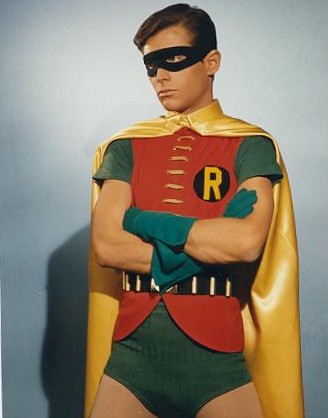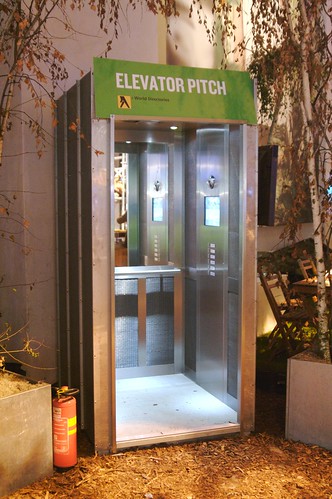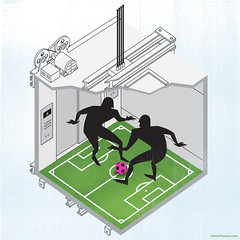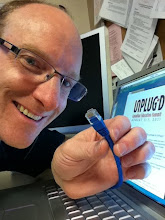 Batman had Robin; Simon had Garfunkel; Jordan had Pippen; Abbot had Costello. Each of these duos had an impact that was arguably greater than any one might have had without initial collaborative success. Alone, each of these folks might have made a difference, but it was as members of a team, that they had their greatest impact.
Batman had Robin; Simon had Garfunkel; Jordan had Pippen; Abbot had Costello. Each of these duos had an impact that was arguably greater than any one might have had without initial collaborative success. Alone, each of these folks might have made a difference, but it was as members of a team, that they had their greatest impact.In education, that someone who helps you change your little corner of the educational landscape is priceless. The partner who listens to your ideas; the sidekick who gives you encouragement to try something different; the colleague who nudges you when you need to get back on track... these are the people who help you be your best. But the special connections who join you in a collaborative project; who present alongside you at conferences; who join you in drafting that grant proposal... these are the people who truly amplify your impact.
Even though these folks might never have met B.T. (before Twitter), a few examples from my Personal Learning Network serve as exemplary case studies, demonstrating the power of partnerships:
1] Heather Durnin and Clarence Fisher recently led their charges to collaboratively publish a book.
2] Dean Shareski and Alec Couros began presenting as 'Lazy Professors' but are regularly in the same time & space.
3] Zoe Branigan-Pipe and Doug Peterson co-presented at the OSLA Faceoff, and continue to learn from one another.
4] Ben Hazzard and Kelly Power started #edbookclub, but this year, they also teamed up to deliver a keynote presentation.
5] Chris Lehmann and Scott McLeod are about to publish What School Administrators Need to Know About Digital Technologies and Social Media.
6] Sheryl Nussbaum-Beach and Will Richardson co-founded Powerful Learning Practice, and regularly push one another's learning.
 While it may be tempting to gauge the success of one's Personal Learning Network by counting Twitter followers or blog subscribers, the true measure of your professional impact, may be the number of dynamic duos with whom you've become professionally engaged. Do you know any folks who would make a terrific team? Why not put them in touch? Who knows, if you reach out yourself, maybe there's a Robin out there waiting to join you for a spin in the Batmobile?
While it may be tempting to gauge the success of one's Personal Learning Network by counting Twitter followers or blog subscribers, the true measure of your professional impact, may be the number of dynamic duos with whom you've become professionally engaged. Do you know any folks who would make a terrific team? Why not put them in touch? Who knows, if you reach out yourself, maybe there's a Robin out there waiting to join you for a spin in the Batmobile?Photo Credit: Bounce; Rodd Lucier






